
views
What makes any movie, show or series everlasting are it’s dialogues. Whether it was ‘Hindustan Mein Sanima Hai’ line from Gangs Of Wasseypur or ‘Kitne Aadmi The’ from Sholay, it was the dialogues that brought about the inherent qualities of the character and the script in it’s most nascent form. Karan Vyas, a writer who has worked on numerous projects such as Made In China, Wrong Side Raju, Sameer had lent his dialogue writing expertise in Hansal Mehta’s highly-acclaimed web series Scam 1992. Fast forward to 2023 and his dialogues in Dimple Kapadia’s crime series Saas, Bahu Aur Flamingo as well as Scoop is already making ways. In an exclusive interview, Karan Vyas recalled working on the same.
Karan Vyas And His Association With Homi Adajania’s Web Series
I was working for Maddock already and internally someone from Maddock recommended my name to Homi and I met Homi. We had a good one hour chat and then I was on board like literally and initially I was also a part of the development of the Bible and everything, the whole broad storyline. I also started writing screenplay and all but then the timelines had real issues. I had to go to Canada for family reasons and then I couldn’t continue with the screenplay. Then Covid hit and new writers room was formed. But once all the screenplay was done, I was called back and I did all the dialogues later on. I was a part of Saas, Bahu Aur Flamingo for 3 years on and off but that’s how I got it.
Karan Vyas Breaks Down The Process Of Dialogue Writing In Saas, Bahu Aur Flamingo
So basically the idea was that we do not commit to a particular geographic location. We wanted to create our own new world where Rani Ba is the one who rules. The land has a sense of realism. That’s why the landscaping references are from Gujarat and others are from Rajasthan. But honestly, the brief and the idea was to create our own new world with a sense of realism and we did not want to commit to a geographic location.
We were not committed to the certain nuances of the geographic location and explore other aspects as well of the storytelling.
So basically we did not wanted to commit to a geographical location so initially we were not planning to put Rajasthani dialect. But at a later stage, we decided to put it to give a sense of realism into this fictitious land. Initially, I had written the dialogues in very normal Hindi. Then an associate director got me in touch with a dialect coach. So that gentleman helped us. We finish off the dialect and then we had a very extensive reading session with
most of the actors. We did all those workshops and readings.
So giving them just lines won’t justify. You have to dive deep into the characters psyche, understand them as to who is the cheeky one, who is the smart one, who is the funny one, who’s gonna give you the sense of profoundness in the lines. Everything needed to be determined and then bifurcated and thought through and then the dialogues were written with a lot of thought behind it which is very authentic to those characters, their graph and their functioning within the story. And that was the process.
Karan Vyas Talks About Homi Adajania’s Contribution To The Process
All the characters are very unique and very different from one another. So Homi’s major role into this was briefing me correctly about each and every character. And constantly putting me into check if this character would say like this, if he’s gonna react like this and those kind of back and forth, notes and everything. It happened a lot. With a true collaborative process, we achieved that distinct tone
for each and everyone and distinct set of lines, their morals and everything, their point of view for each and every character we went through that exercise. And that guidance and direction really helped me to chart out all these amazing characters, bahus of the house, Saas, sons, the adopted son, the villain, the villagers, everyone. From top to bottom, Proshun the cop everyone. All these characters had to be interesting, different and line should not be repetitive and they have to be consistent every episode and Homi major contribution was to direct me and guide me and brief me about all these characters and keep me on check if they are consistent throughout the show.
Karan Vyas Explains Whether Dialogue Writers Get Their Due Recognition
We have seen an emergence of lots and lots of heartland stories coming into the mainstream platforms or films and everything and it’s really good. It has given a lot of empowerment to the dialogue writers. But the dialogue writers have been a very important part of screenwriting and script writing from years and years. In the 100 years of history of Bollywood cinema, since the time the talkie started, the dialogues and the dialogue writers played a really major part. We are still an industry where the dialogue writers get their dues a lot. Whenever your dialogues are picked up like ‘Risk Hai Toh Ishq Hai’, ‘Mein History Banana Chahata Hun’. All the Scam dialogues or even dialogues from Saas, Bahu Aur Flamingo is picked up by the regular people. A simple dialogue like from Sholay Kitne Aadmi The to another great line from Gully Boy Apna Time Aayega, whenever these dialogues were picked up by the regular people and it becomes the part of the vocabulary in a day to day life, that due give by the audience is more than anything. That’s more than a recognition. Besides that, I think after the emergence of OTT, due credits are also given and OTT is also very much a writer’s medium so the screenwriters, dialogue writers and writers room, everyone works well in the synergy and the functioning is very great. And now even the network recognises the importance of a good dialogue writers, script writers and everybody from the development team is getting their dues which is much more than the previous times.
Karan Vyas Answers If The Art Of Dialogue Writing Will Improve In Coming Times
I have immense respect for all my contemporary writers including current writers, senior writers, upcoming writers who are just starting out. So I think they all are bringing their own distinct voices into the characters we are serving on the script. On top of it, as an industry, we are improving day by day. Ofcourse, there’s a room for improvement but that’s the process. You work and sometimes you succeed and sometimes you don’t. You learn, you move on and you move forward.
Karan Vyas Recalls His Association With Hansal Mehta And Scam 1992
Strangely, when I was working on Saas, Bahu Aur Flamingo, at that time, the show name was Saas, Bahu Aur Cocaine. And this was around three and a half, four years ago. But at the same point of time, somebody recommended my name to Hansal Mehta. He was looking for a specific dialogue writer who knows Gujarati, who understands Gujarati culture, and who had maybe written a Gujarati film. I was somebody who fitted the criteria very immediately. Not one but a couple of people recommended my name to Hansal Mehta. In our first meeting, we did not talk about the project. I did not know which project I was going for. I just knew Hansal Mehta was directing one web series and he needs a dialogue writer. In that meeting, we actually did not speak about the project at all. He was checking my vibe if I was the right kind of person to collaborate or if our wavelengths will match or not.
At the end of the meeting, he told me he was going to send me the screenplay, you read it, you give it a thought and you can attempt a draft or two of couple of episodes. And then get back to me. That’s what happened. I read it. Fantastic screenplay by Saurabh and Sumit. I attempted on first three episodes. I took some time and gave them the first draft of dialogues for all three first episodes. I went to him and narrated the first two episodes and he asked me if I had the energy to narrate the third one. And I said, ofcourse I can. Same day, I narrated him back to back three episodes and he just loved it. And that’s how I came on board for Hansal. At the time when we were working, nobody in our team had imagined that the love it has received or the amount of love it will receive. We always thought it was a very niche, technical show which might find it’s very niche audience, but it resonated with so many people.
Initially, it was very overwhelming and new for all of us and especially for me. But as soon as the reality hit that show has been successful and popular,
I was thankful to everyone, to all the actors, to team, Hansal Sir and everyone. I am immensely, fortunate, lucky, proud to be part of the project and Scam 1992 will always be the most special project of my life.
Karan Vyas Gets Candid About His Latest Series Scoop
After Scam 1992, very immediately I started working on Scoop. And because we worked on Scam, we had a fair amount of understanding for each other as to what he wants, what I want. Scoop was a very different show from Scam and it has to have a certain gravitas of dialogues. On top of it, fantastic screenplay by everyone. I was literally blown away after reading it. I followed the exact same process which I followed writing Scam. It was really comforting working with Hansal Sir. He just gives you that freedom in the lines and everything and at the same time, he constantly guides you, what he wants, how the show should be, what is the character and everything. We have enough amount of discussions and he gives proper feedback on the drafts I bring them. They are so precise and specific that within a couple of drafts, we achieved what we were looking for. I think that’s the best part of Hansal Mehta. He is so sharp and precise.
Karan Vyas’s Journey As A Dialogue Writer
My journey has been very interesting and it would have been very very long answer. Maybe one day I will write my own biography then I will be able to sum it up from Sultan, a short film I made for my film school thesis till Saas, Bahu Aur Flamingo. Initially, I wanted to become a director. Then while I was in the direction program, I produced my own short film and then I had immense respect for the producing job. Then I extended my film school and on the side, I also did the producing program. I was somebody who was so much attracted to direction and producing. And then, while I was doing my internship in the production house in LA, I had the best job. I was a producer’s assistant and my job was to read scripts which was being submitted. I was the one who would read one script a day
for a couple of months. And while I was reading so many scripts, I instantly fell in love with the whole craft of script writing. And I started learning from my own. When I returned back to India, within a month, I met one of the directors and I got a job as a screenwriter. And I attempted my first screenplay, that film got made and after so many years, almost two decades later, a Gujarati film won a National Award and that was the film which I had written the screenplay and dialogues for and after that my journey started.
But even in this journey from my film school which happened in 2011 till 2023, this thirteen years, I have been through full of ups and downs, rollercoaster ride, highs and lows but very fun and memorable years. And I continue to stay on this journey and path
and enjoy myself as a writer at the moment.
Karan Vyas Thoughts On Censorship
We as writers now are very much aware and we understand our responsibility. It’s understanding the nature of the show and what we are trying to make it. Are we trying to get a lot of eyeballs and create sensationalism. Is that the aim? Then I think censorship kind of works but it has to be a self-censorship on a very primary basis. My working style and methodology is very different. I am against any institutionalization of censorship that there is a body who censors. I think there has to be a self-censorship and by that what I mean it has to be very subject driven. A writer should have a certain kind of creative liberty and there has to be a self-control on how to indulge myself and how not to indulge myself on a certain type of scene. It has to be based on what’s the subject storyline, do we need it, how it’s gonna impact the viewer, how it’s not gonna impact the viewer, all to just create that buzz. All those questions, the writers, the dialogue writers, the creator, director, all these people need to ask themselves and then proceed.
And after all that brainstorming exercise, one should go ahead with what’s best for that project. How much audience you are trying to reach out for and after that, what should be happening is a governing body should only be bifurcating the suitable age group.
We have a lot of demarcation for that as well. Just a categorising of this categories like this show is suitable for a 12 year old etc. Other than that, there should not be a censorship on the creative choices of the makers. And top of that, we should have a personal responsibility to why we need a certain kind of a scene. If there is a scene where the two characters are making love, at what extent you want to show it. That decision and choices should be based on what you are achieving on a particular scene, how it’s gonna affect the whole arc and all those choices has to be creative choices and well thought out choice than any other ulterior motive. If that is there, we are all in a good place and the government and the governing body should only categorize on the basis of content and age group rather than chops and cutting and suggestions and altering the material. It’s a very complicated question with a complicated answer but this is how I feel.











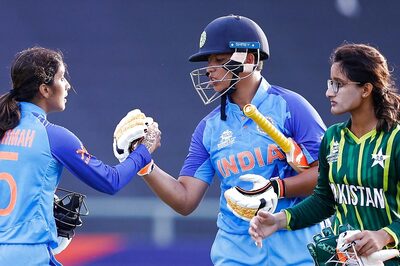

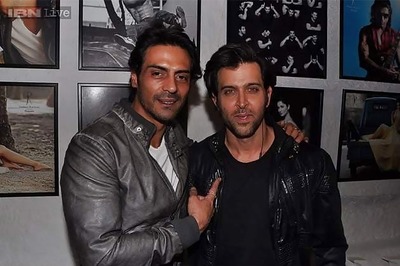

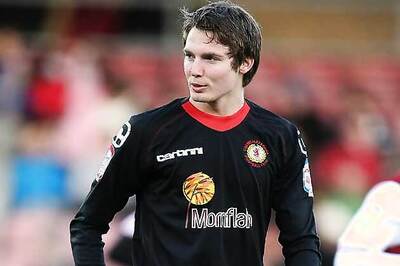

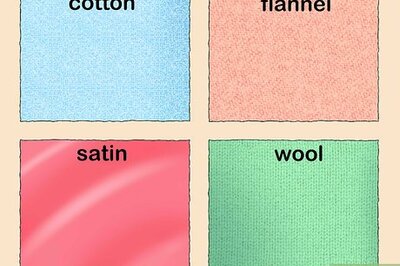
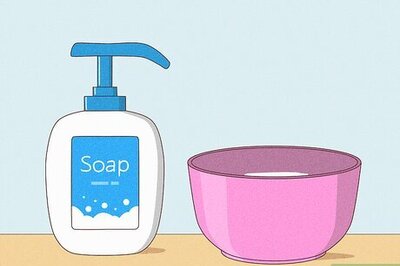
Comments
0 comment